CEBU CITY, Philippines —Caves offer a different world beneath our feet.
Its cool surroundings, with little to no light, give a sense of mystery.
Caves often hum with stillness—the kind that makes even your own breathing sound loud.
In many cultures, caves are seen as sacred spaces. They’re considered natural cathedrals, places of reflection, meditation, and sometimes, miracles.
In a quiet hillside of the busy City of Cebu, a cave offers exactly these.
Tucked away in Barangay Kalunasan, the Langob Shrine—also known as the Guadalupe Cave Shrine—is a serene spot for reflection and prayer.
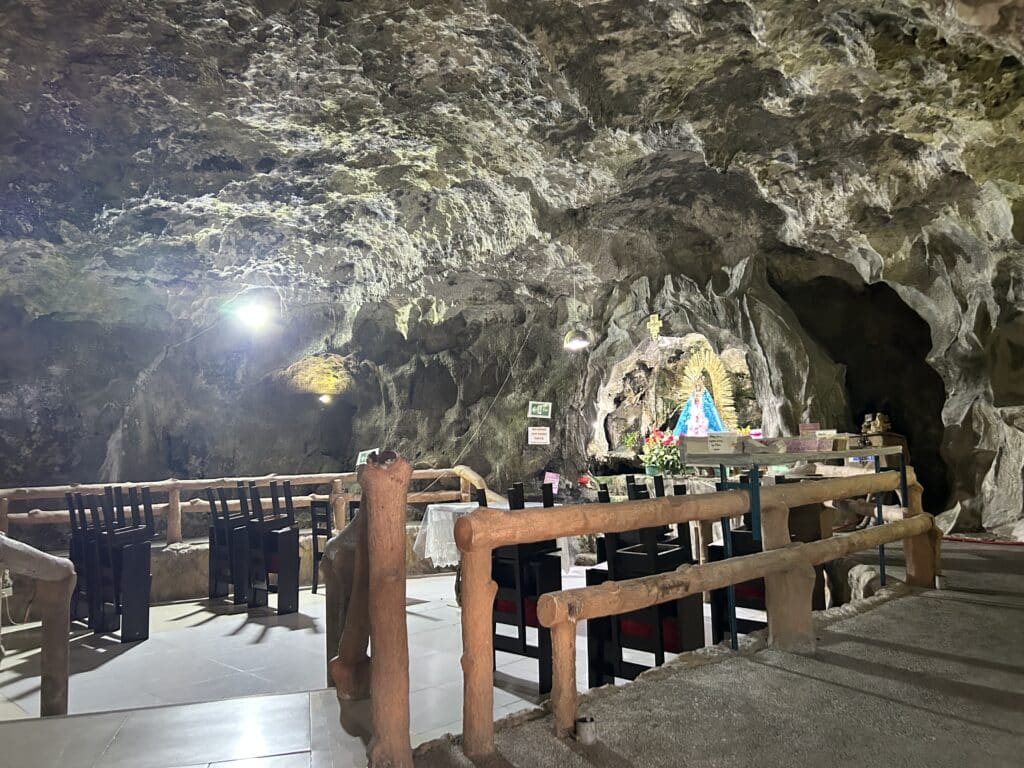
Our Lady of Guadalupe’s Langob Shrine in Barangay Kalunasan, Cebu City. CDN Digital photo | Immae Lachica
Here are some reasons to check out the Langob Shrine:
1. Spiritual significance
The cave houses a replica of the image of Our Lady of Guadalupe, believed to have been discovered by a local hunter in the 18th century. This image has become a symbol of faith for many devotees here.
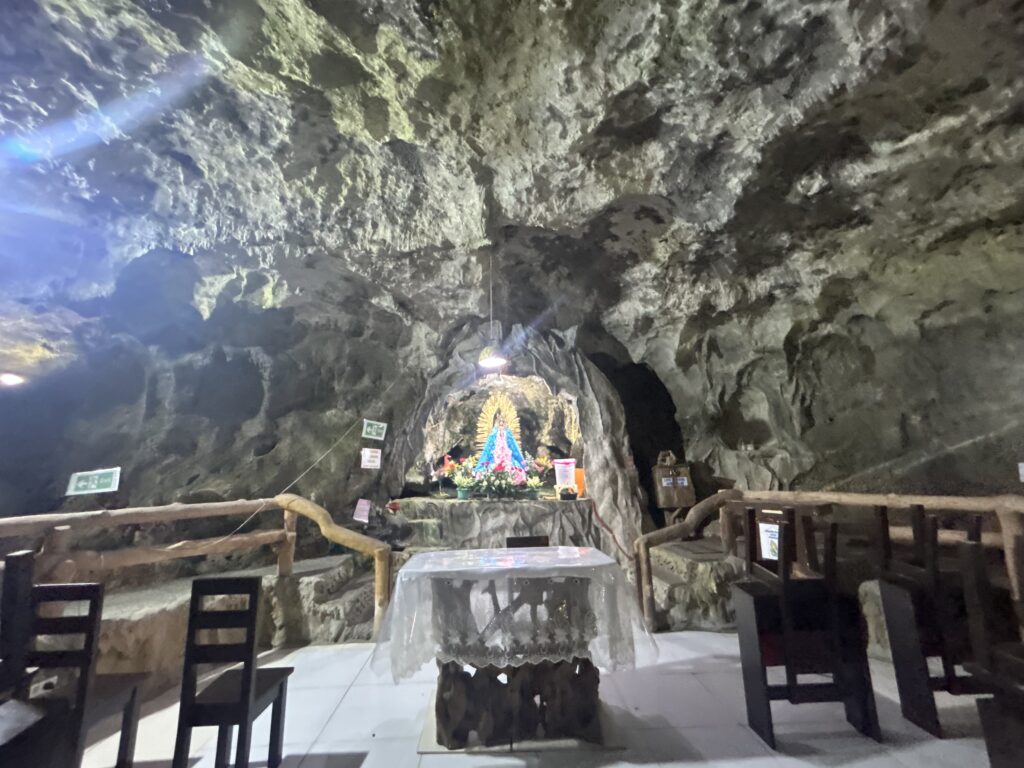
Our Lady of Guadalupe’s Langob Shrine in Barangay Kalunasan, Cebu City. CDN Digital photo | Immae Lachica
2. Healing waters
Inside the cave, water drips from stalactites into a basin. Many visitors collect this water, believing it has healing properties.
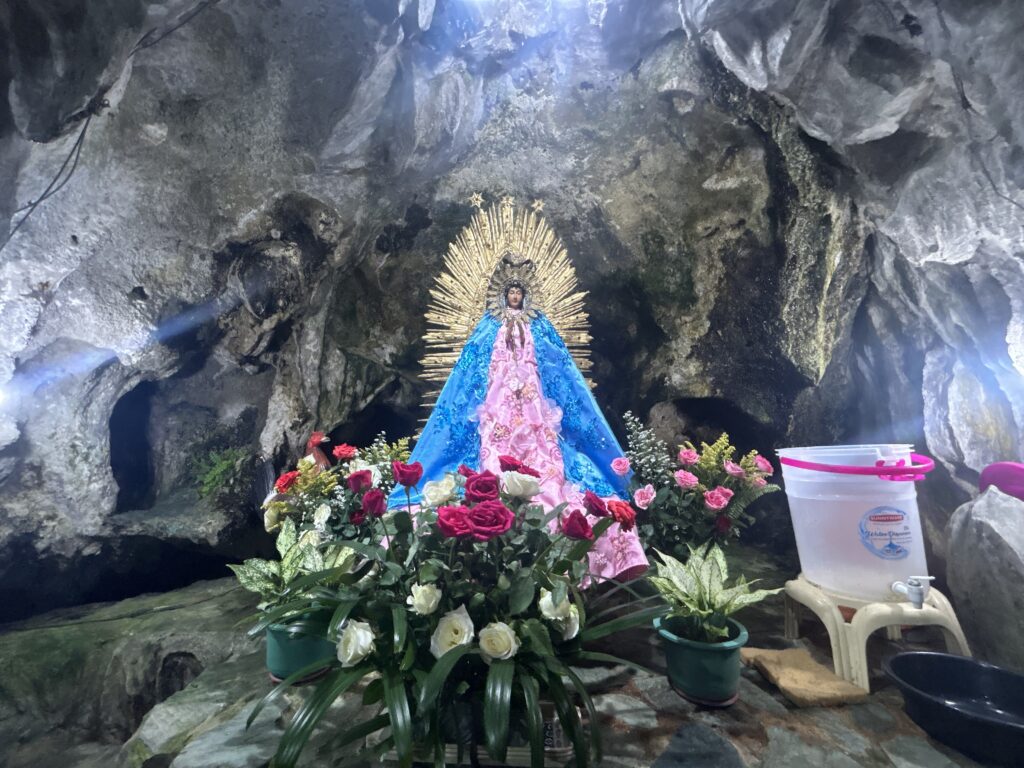
Our Lady of Guadalupe’s Langob Shrine in Barangay Kalunasan, Cebu City. CDN Digital photo | Immae Lachica
3. Peaceful environment
The shrine offers a quiet atmosphere, ideal for meditation and prayer. The serenity allows visitors to focus on their spiritual journey.
4. Masses
Masses are held inside the cave every Saturday at 9 a.m.
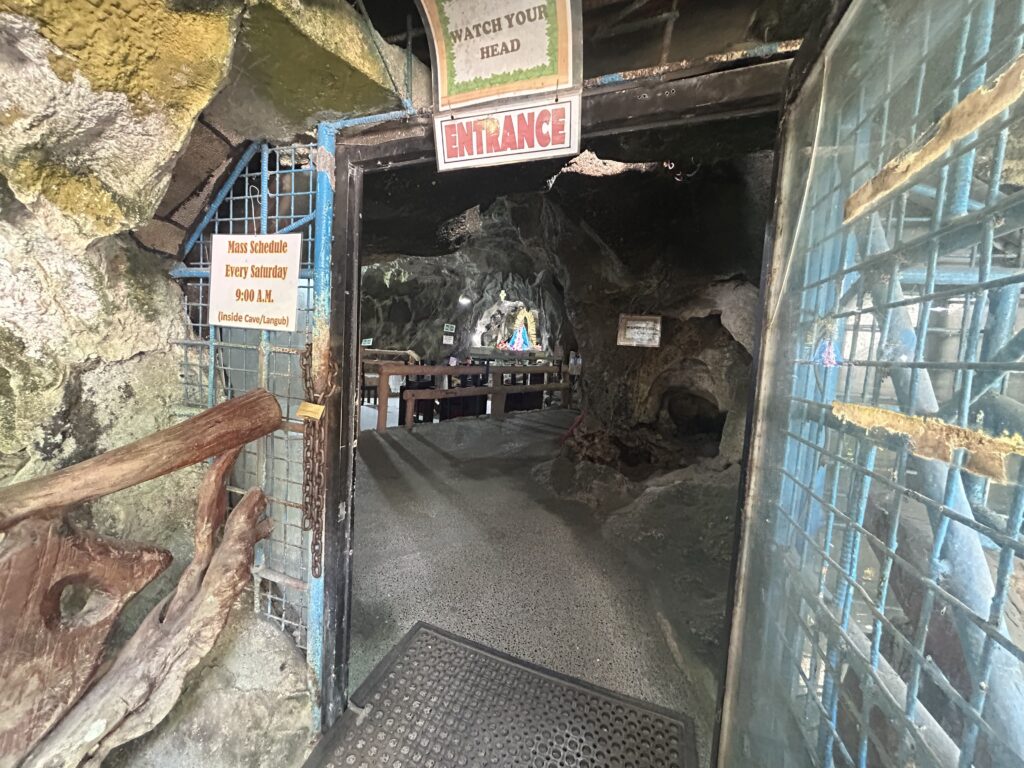
The entrance to the cave. CDN Digital photo | Immae Lachica
5. Accessibility
The Langob Shrine is just less than 5 kilometers from the Cebu Provincial Capitol (km 0) and there are several ways to get there. You can just use navigation apps on your cellphones and type Our Lady of Guadalupe Shrine or click this link.
Langob Shrine history
A 2017 article by Cebu Daily News titled “Our Lady of Guadalupe’s Langob Shrine: A Cave to Calm the Heart, Heal the Soul” recounts how the original image found in the cave eventually found a new home at the Archdiocesan Shrine and Parish of Our Lady of Guadalupe.

A glimpse of the entrance to the cave. CDN Digital photo | Immae Lachica
During the deadly 1902 cholera outbreak in Cebu, locals prayed to Our Lady of Guadalupe de Cebu. They held dawn processions, and soon the deaths stopped. In thanksgiving, a mass has been held every July 16. A small hermitage was built at the cave, but it was later destroyed by fire.
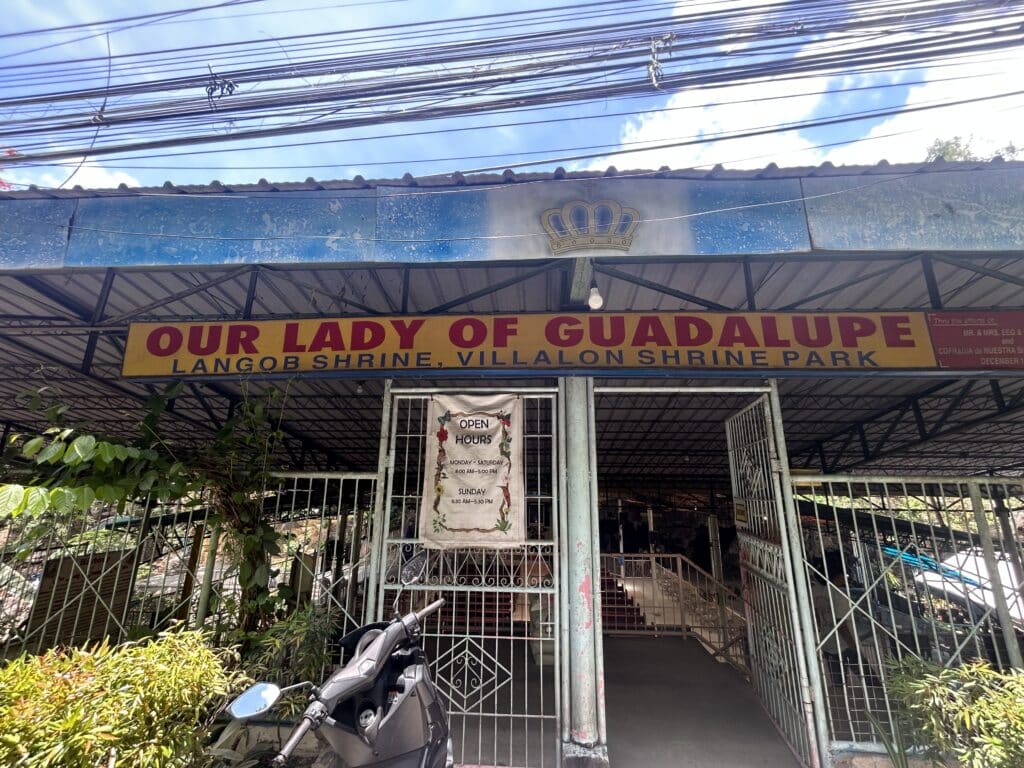
The entrance to the Our Lady of Guadalupe’s Langob Shrine in Barangay Kalunasan, Cebu City. CDN Digital photo | Immae Lachica
Because of this, the image was brought to the San Nicolas church, which had jurisdiction over the area.
A chapel was eventually built in Kalunasan, and the image was returned each year for the fiesta.
In the 1920s, while the image was being brought back to San Nicolas, it fell off its carriage. But it stood upright and and made a 180 degree turn by itself, facing the direction of the chapel where she came from.
When the parish priest of San Nicolas learned about the incident, he decided that the image be permanently enshrined in Guadalupe.
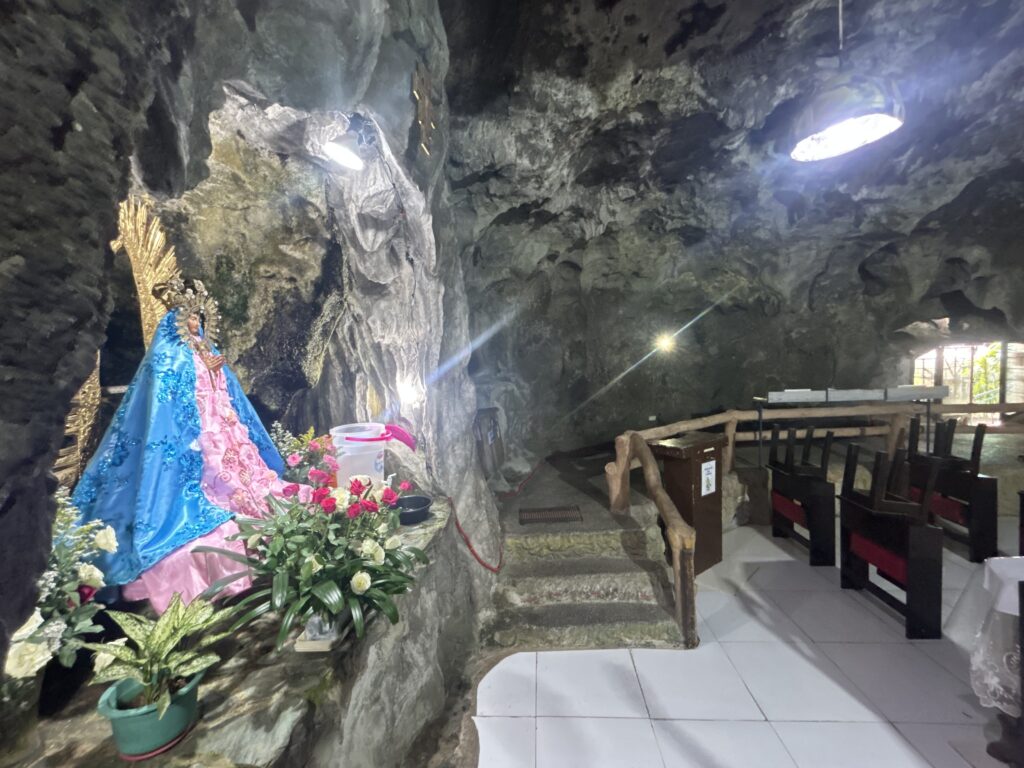
Inside the Our Lady of Guadalupe’s Langob Shrine in Barangay Kalunasan, Cebu City. CDN Digital photo | Immae Lachica
Although the original image of the Our Lady of Guadalupe de Cebu was later enthroned in a larger church, a replica remains at the cave where it was found.
In 2002, Cardinal Ricardo Vidal declared Our Lady of Guadalupe as the principal patroness of Cebu.
Have you been to the Langob Shrine? Share your experiences with us on the comment section below.

